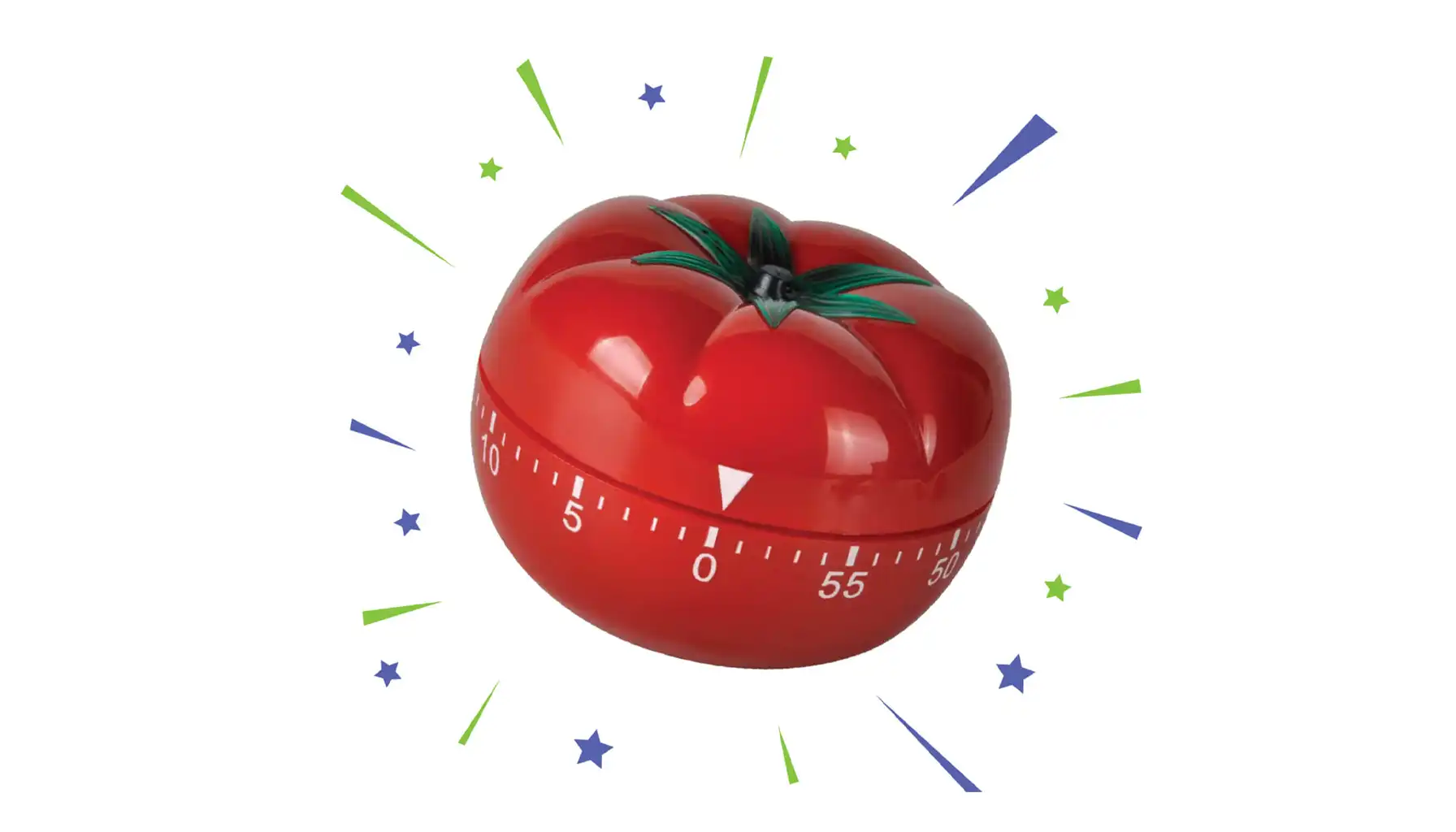How to Improve Focus and Concentration: Science-Backed Techniques

Hey, are you reading this article with a video/music in the background? Or perhaps you’re trying to scroll through this introduction? You, my friend, might have a problem with concentration.
It’s a bane of our modern age. Everyone has a hard time focusing! You might ask: “How can I improve my focus and concentration?” With science-based recommendations from this article!
Games for the brain can also help improve focus and productivity.
Why It’s So Hard to Focus
Focus problems have different reasons. Some of them are easier to solve, and some aren’t.

Mental/Emotional Reasons
We’re concentrating with our mind. It’s very likely that if you have problems focusing, the source of the problem is in your mind.
Stress or anxiety. When you feel stress/anxiety, they put your brain in “survival mode”. Then it's hard to concentrate on tasks. Instead, your brain is constantly planning “contingency plans” against everything that hurts or might hurt you.
Depression. This long-term condition generally reduces mental and physical productivity. You’re experiencing mental fatigue, which can drastically reduce focus.
ADHD. This neurological condition makes it hard to keep attention. It’s hard to find out how to improve focus with ADHD, though people have found at least 7 ways to treat ADHD.
Overwhelmed mind state. Too many tasks or responsibilities can lead to cognitive overload. Just as you can’t exercise with sore muscles, you can’t exercise a tired brain.
Lack of interest. If a task doesn’t feel meaningful, the brain naturally drifts away. We can force ourselves to keep attention for 10-20 minutes, but hardly any longer.
Physical Reasons
The brain is a very complex organ, and it needs a constant flow of nutrients and energy. If something disrupts the flow, the brain works improperly.
Lack of sleep. Sleep deprivation reduces cognitive function and attention span. Get at least 7 hours of sleep and go to bed before midnight.
Poor nutrition. A diet low in nutrients or high in sugar can cause brain fog. Fish, berries, and leafy green vegetables are among the best foods for the brain.
Dehydration. Even mild dehydration can impact memory and attention. We need to drink about 8 glasses of water daily.
Lack of exercise. Physical activity helps regulate mood and mental energy. When we exercise, the brain releases good hormones, and the nutrients flow more efficiently.
Bad Working Routine

Next time you’re doing a task, try to analyze your routine. You might be doing it all wrong.
Distractions. Noise, people, and clutter disrupt our working process. Hard to concentrate with everyone being loud.
Multitasking. You might be switching between tasks. It breaks deep focus and creates a habit of non-concentration.
Lack of routine. Irregular habits make it harder for the brain to settle into a focused mode. Daily plans could help.
Phone and notification overload. Constant notifications are disturbing. People in general like to steal your attention from the tasks at hand.
Improper Goals
Sometimes it’s not about your routine, but rather your mindset.
Unclear goals. If you're not sure what you’re supposed to do, your focus naturally wanders.
Procrastination cycles. Procrastination is a habit of doing other, menial tasks, instead of the main one. For example, you have to make a presentation, but instead of making slides, you’re watching YouTube Shorts. Avoiding tasks leads to guilt, which further clouds focus.
Perfectionism. Instead of focusing on the task, you focus on the feedback. Fear of not doing something perfectly can delay getting started.
10 Focus Techniques
How to improve concentration and focus? Scientists and therapists found many focus techniques.
1. Try the Pomodoro Technique

Pomodoro is Italian for “tomato”. Once, Francesco Cirillo, a university student, had a hard time focusing on his studies. He wondered how to improve concentration and focus while studying. Then an idea hit him.
Francesco had a tomato-styled kitchen timer. He used it for the following routine, which you can replicate:
Start the timer and work for 25 minutes
During these 25 minutes, you’re doing your task. No disruptions. The timer running smoothly keeps you grounded.
When the time is finished, take a 5-minute break.
You may keep records of what you did during the 25-minute mark to feel productive.
2. Time Blocking
Time blocking is a technique for scheduling specific blocks of time for different tasks. Sometimes people call it “time boxing”. It’s a great help if you have various important activities throughout the day. It’s more efficient than multitasking and reduces cognitive overload.
Schedule blocks of time on your calendar. For example, an hour to write an essay or 30 minutes to read a book.
Protect those blocks. No multitasking.
This way, you know exactly what you did throughout the day and feel productive. Plus, a definite time frame keeps you locked in.
3. Try Day Theming
This technique is similar to time blocking. It works for those with a less limited routine.
You schedule a whole day for a specific theme. For example, a whole day for making a big presentation. 2 hours for researching the topic, 4 hours to finish designing, and 2 hours to practice your speech.
Don’t mix the themes.
This way, you know how productive you were during the day.
4. Explore the “Brain Dump” Method
This method works well if you feel overwhelmed. It helps clear mental clutter and frees your brain to focus on the task at hand. It’s very effective if you want to know how to improve focus in kids. By doodling, they can wash away all the problems.
Write down everything that’s on your mind. Your worries, to-dos, and random thoughts.
After this little moment of peace, you can continue doing your tasks.
5. Try Mindfulness or Meditation

Try meditation to restore cognitive strengths. Daily mindfulness practice (even 5 minutes) can train your brain to stay present. A great method for those wondering how to improve concentration and focus while studying
Do breathing exercises. Meditate: sit and relax, and think of nothing for 5 minutes.
You can listen to binaural music or “music for studies”. They put you in a working mood without disturbing your work.
6. Use the 2-Minute Rule
Never put off until tomorrow what you can do the day after tomorrow.” This technique focuses on the immediate execution of smaller tasks, so you can have more time for the big ones.
If a task takes less than 2 minutes, do it immediately.
So many tasks take 2 minutes. Writing a message, answering an email, making your bed, brushing your teeth.
7. Use the “5-Second Rule”
This strategy is designed to overcome hesitation and procrastination. You take immediate action in five seconds. Helps bypass hesitation and delay. Works great for those wondering how to improve focus at work.
You encounter resistance and suddenly feel stressed.
Count down from 5, take a deep breath.
After five seconds, start the action immediately.
8. Try Energy & Break Management
Remember to recharge your strengths. Have healthy snacks every few minutes for energy.
Match your most demanding tasks to your peak energy times. It’s the time when you feel most productive.
For most people, it’s in the morning. For night owls, it’s often night.
Take regular movement breaks to refresh your brain. If you’re physically challenged or your body has grown weak, try coordination exercises.
9. Start with the “Frog”
This technique has an even funnier name, “Eat the Frog “. It’s called like this because you have to deal with the most unpleasant tasks of the day first. It reduces procrastination and builds early momentum.
Tackle your most difficult or important task first in the day.
Everything else feels less daunting after you've dealt with “the frog”.
10. Use Brain Platforms
Brain games and platforms are a great way for general cognitive improvement. These brain games improve your memory, boost reaction speed, hearing skills, and, of course, memory and concentration. If you wonder how to improve focus and productivity, it’s a great pick. Gamification makes it easier to keep attention.
Do breathing exercises. Meditate: sit and relax, and think of nothing for 5 minutes.
You can listen to binaural music or “music for studies”. They put you in a working mood without disturbing your work.
Why Focus Matters
Now you know how to improve focus and memory. You’ll need it in your personal and professional life.

The world today is filled with distractions, from constant notifications to endless video recommendations. Big companies want to grab your attention to sell you their product. Only by directing your attention to one thing can you dodge all their attacks.
People who know how to concentrate are productive. They also feel less stressed and are less overwhelmed. Perhaps most importantly, focus gives you the power to follow through on your goals. You know the path to the result, and you're doing it.
Hopefully, our recommended techniques can help you. Those are among the best exercises to improve focus. Perhaps all that you need to become successful is a little change in lifestyle.
Mind Elevate
Would you like to play games without feeling bad? Try Mind Elevate.
It’s a fantastic app with educational games like:
Music games
Memory games
Logic games
Attention games
Brain Training games
Attention games probably made you a bit curious. Games like “Orbital Match” and “Rocket Maneuver” can improve memory and focus. Plus, they’re just fun.
Just like our recommended techniques, this platform is also supported by scientists. You know that your cognitive development is in the right hands.
Mind Elevate is free and available for iOS/Android.
FAQ
There are many misconceptions and questions from people seeking ways to improve focus.
How to Improve Kids Focus?
Kids are the hardest demographic when it comes to focus. Especially if a child shows some ADHD symptoms. If you want to know how to improve kids' focus, try dividing. Breaking work into smaller, more manageable chunks makes it easier for them to stay engaged and feel a sense of progress.
How to Improve Focus in Photos?
Artists often have to look at a photo/image for a long time, and it gets hard. We recommend starting with a general look and then looking at part of the photo from left to right. Try to take breaks every now and then.
Does Nicotine Improve Focus?
Yes, technically. But it’s not worth it. Nicotine as a stimulant interacts with the brain’s receptor governing attention and alertness functions. You get a boost after inhaling, but with time, your body slowly withers away, which impairs focus and brain work. If you wonder how to improve your focus, this is not your best choice.
Does Caffeine Improve Focus?
Yes, caffeine can improve focus, especially in the short term. It’s one of the most widely used and studied stimulants. You can use it at work if you wonder how to improve customer focus, but don’t rely too on it. Too much caffeine is bad for you.





